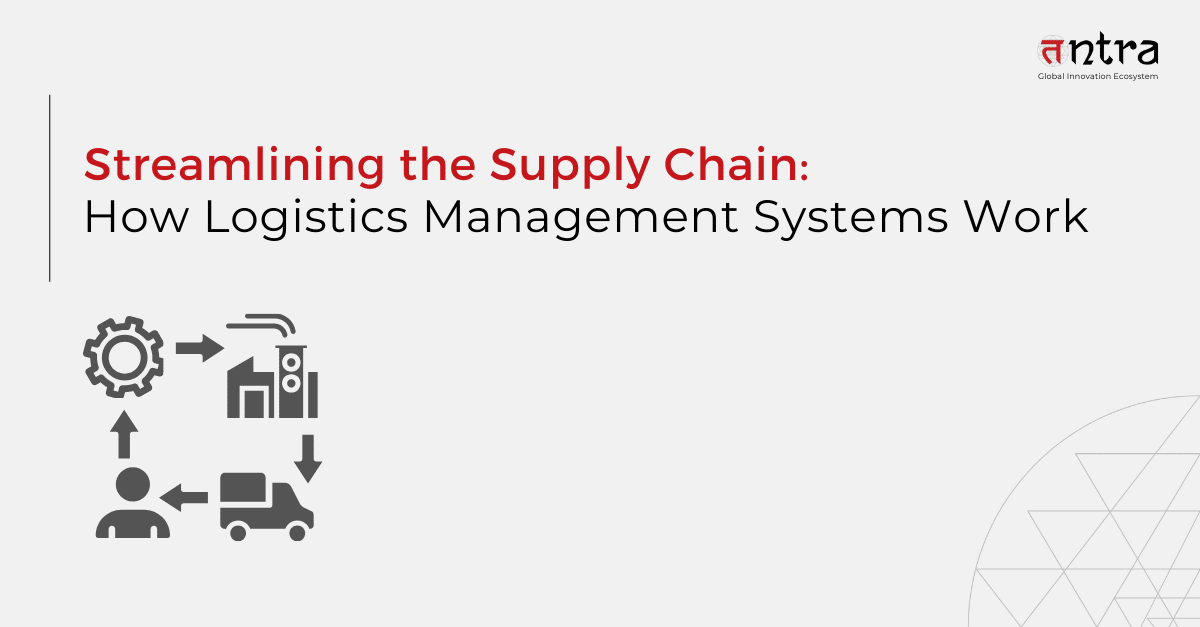
Streamlining the Supply Chain: How Logistics Management Systems Work?
Table of Contents
ToggleLogistics management systems are increasingly becoming common for enterprises of all shapes and sizes. From optimizing delivery routes to managing inventory, these holistic systems allow organizations to streamline their operations like never before. This blog highlights the importance of logistics management solutions in managing supply chains that can contribute to higher profitability and simplify inventory management operations.
Nike has been promoting its “digital-first” supply chain initiatives for some time now. These efforts have been pushed by the difficulties clothing and shoe companies faced in the past two years.
Nike uses cutting-edge demand-sensing and stock optimization technology platforms to support its multi-node regional distribution network. This logistics management system is helping Nike anticipate, plan for, and shape one-to-one consumer demand.
Nike is utilizing technology to deliver goods faster, more accurately, and sustainably by forward-positioning the products that customers love most using AI and machine intelligence. Apart from utilizing local service centers, features like Buy Online, Pick Up in Store (BOPIS), Ship to Store, No Rush Shipping for customers who value sustainability, and Direct Order Drop assist in making sure customers have what they need.
Similar to this, Adidas may use logistics and order management software to run its company more profitably and offer superior customer care. Adidas is able to accomplish auto-replenishment through the use of software; previously, this was a manual procedure.
Employees can share item orders on the list and utilize the inventory app with the logistics management software on mobile point-of-sale devices with ease. A different employee then picks up the order and brings the item to the customers on the shop floor.
(Source: Just-style, Trident)
A Fact-Based Overview of the Logistics Management Software Market
In 2022, the size of the global market for logistics software was estimated to be USD 83 billion. It is projected to increase at a CAGR of 9.36% over the forecast period (2023–2031), reaching USD 33.17 billion by 2031.
The global logistics management software market is divided into segments according to application, including data management, asset and fleet management, transportation management, and warehouse management. The market’s biggest contributor, data management, is anticipated to grow at a compound annual growth rate (CAGR) of 10.32% throughout the course of 2022 – 2028.
To fulfill the growing demand for sophisticated supply chain management services in the transportation, food and beverage, and automotive industries, the market’s providers are also putting cutting-edge software into practice. This will probably result in profitable prospects for local market growth.
How Logistics Management Software Streamlines Business Operations
To better navigate the ever-changing business landscape, 76% of businesses have accepted the digital revolution in managing their supply chains. Moreover, it is one instrument that may maximize the possibilities of your distribution operations, expedite delivery, and give total transparency to all parties involved in the logistics management software system.
Here are a few ways logistics management software operates and benefits businesses as a whole –
- Better Inventory Management
Businesses may effortlessly monitor their stock across several sites or warehouses by utilizing a centralized logistics solution. By doing this, they can minimize carrying costs, maximize stock levels, and prevent situations where stock outs or overstocking occur. When firms have access to precise inventory data, they can make well-informed decisions about their purchasing and restocking strategies.
- Optimized Order Processing
Order processing is expedited when supply chain software solutions are used. Time-consuming and prone to errors, manual entry of orders is a common source of frustration for small businesses. Orders can be easily entered into the system from various sales channels, including point-of-sale systems and eCommerce platforms, with the help of logistics software. In addition to saving time, automating order processing lowers the possibility of mistakes occurring during data entry or fulfillment of orders.
- Proper Route Planning
By using route optimization algorithms, implementing real-time data, managing fleets, managing and consolidating loads, offering data visualization and mapping capabilities, producing reports and analytics, and combining with other systems, logistics management solutions can assist with advanced route planning. You can improve customer service, reduce transportation expenses, and optimize routes with these features.
- Data-driven Decision Making
Logistics software frequently has strong analytics and reporting features that offer insightful information on key performance indicators (KPIs). Metrics like order accuracy rates, on-time delivery rates, and inventory turnover ratios can be monitored by businesses. Equipped with this data, they can pinpoint operational bottlenecks and put plans in place to increase productivity.
- Improved Stakeholder Collaboration
Key stakeholders, including suppliers, carriers, and customers, are brought together by logistics management software to facilitate smooth, real-time coordination. In a logistics setting, it is crucial when all parties involved in the supply chain anticipate being aware of every step of the process. By streamlining communication throughout your intricate network, you may cut down on errors, misunderstandings, and wait times.
Large Freight Forwarding Company achieved remarkable results by increasing document processing efficiency by 80% using our document processing platform. Read the case study now
Logistics Software is the Future of Supply Chain Management
For enterprises trying to optimize processes, logistics software is revolutionary. The advantages of utilizing logistics software are indisputable, ranging from better customer service and data-driven decision-making to expedited order processing and inventory management. In today’s fast-paced business world, small enterprises can gain an edge over their competitors by integrating technology into their logistics procedures.
If you are looking for a software product engineering company to supercharge your supply chain, Tntra is your best choice. We have 15+ years of experience building holistic supply chain solutions for companies across the globe. Contact us today for a free consultation.





